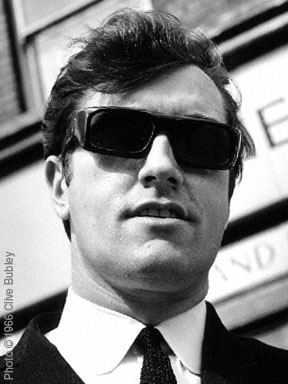
A few curios to share before we reach the much-anticipated Episode 100. Don’t forget about the PZ’s Podcast Reception taking place at 6:30pm on Friday 4/20, as part of our NYC Conference (the event is open to listeners everywhere).
Unreleased PZ: Can Anything Good Come Out of Meeksville?
 This one came from the vaults — or, more aptly, from the “tea chests”. (What are the “tea chests”? — That’s PZ’s Question of the Week, and can be answered by writing him at PZsPodcast@gmail.com.)
This one came from the vaults — or, more aptly, from the “tea chests”. (What are the “tea chests”? — That’s PZ’s Question of the Week, and can be answered by writing him at PZsPodcast@gmail.com.)
I see in Robert George Meek — Joe Meek — a perfect instance of what Simeon Zahl calls “the Nazareth principle”. Jesus of Nazareth was often put into a (bad) box by means of the question, “Can anything good come out of Nazareth?”. (Correct answer: yes.)
The same applies to Joe Meek, who was an independent record producer in London during the late 1950s and early 1960s. He produced, among other inspired songs, “Telstar”, with his pal Geoff Goddard.
This podcast, recorded quite a long time ago but in which I so believe, is about Joe Meek, his life and work, in relation to the Nazareth principle.
It’s longer than usual, so the listener may wish to take it in two doses. Also, it contains two mistakes:
I confuse the guitarist Jimmy Page with the guitarist Ritchie Blackmore; and ‘Screaming Lord Sutch’ with ‘Lord Buckethead’, who did run for a seat in Parliament.
Joe Meek was a wonder. How many of us wish we could have comforted him, and tried to sustain him.
[youtube=http://www.youtube.com/watch?v=GuwF-1d9ySE&w=600]
Bonus Material I: Brain Boosters
[youtube=http://www.youtube.com/watch?v=r9C3tZwDpx4&w=600]
Bonus Material II: Joe Meek’s Letter to John Ginnett
On December 14, 1966, Joe Meek wrote a letter to his accountant and (I believe) solicitor, John Ginnett.
This letter reveals the extent of the toll taken on Meek by the “Telstar” case, which was a lawsuit by a French composer accusing Meek of having used a melody he had written for a movie. (Later, after Meeks’ death, Meek won the case!)
The letter, which is read as is — that is, without editing the many run-on sentences in the text — gives the independent record producer a chance to reflect on the musicianship of some his artists (shades of Broadway Danny Rose), on the notion that artistic expression is a form of love, on the role of the sub-conscious mind in musical composition, on the limitations of teenagers in understanding themselves, and on Joe’s admission that he had become “not nice” in recent times.
As should probably (almost) always be, I have given ‘Heinz’ the last word on all this.

COMMENTS












